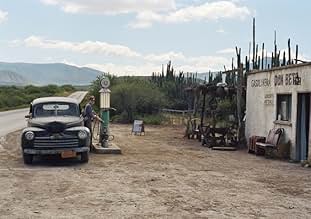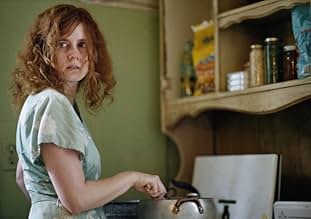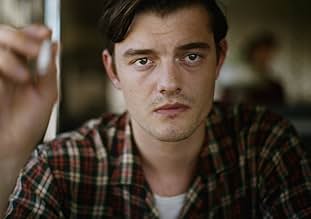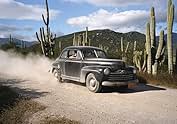Le jeune écrivain Sal Paradise voit sa vie chamboulée par l'arrivée de Dean Moriarty et de sa fille, Marylou. Lorsqu'ils parcourent le pays, ils côtoient de diverses personnes qui ont chacun... Tout lireLe jeune écrivain Sal Paradise voit sa vie chamboulée par l'arrivée de Dean Moriarty et de sa fille, Marylou. Lorsqu'ils parcourent le pays, ils côtoient de diverses personnes qui ont chacune un impact inébranlable sur leur voyage.Le jeune écrivain Sal Paradise voit sa vie chamboulée par l'arrivée de Dean Moriarty et de sa fille, Marylou. Lorsqu'ils parcourent le pays, ils côtoient de diverses personnes qui ont chacune un impact inébranlable sur leur voyage.
- Réalisation
- Scénario
- Casting principal
- Récompenses
- 2 victoires et 4 nominations au total
- Walter's Wife
- (as Tetchena Bellange)
Avis à la une
So let's take a page out one of Kerouac's best books, start at the beginning, & let the truth seep out.
I first encountered "On the Road" in the public library when I was in 6th grade. It spawned a fascination, an obsession, an addiction. Between the age of 12 & 18, outside of school, the Beat writers were all that I read. I devoured them. And in the years since my youth Kerouac has morphed from an obsession to a comfort author, I read him to help cushion the blows life brings. "Maggie Cassidy," is still my favorite.
That being said, I walked into this flick with extremely low expectations. I'm more than familiar with the source material & couldn't see how it could translate into anything but a dull film. I expected the film to stagnate. I wasn't really disappointed in this. Anyone that has read "On the Road" has to question the wisdom of attempting to translate that into a decent movie.
Like the novel, there are parts of this film you just have to fight through in the hopes that he'll move off his love for grape picking & into something interesting again.
The plus side is, once you make it past the stagnation, the plot picks up again & you feel the sense of freedom having overcome the monotony of Kerouac. But on the other-hand, I'm fairly certain that's the point.
The bottom line is that if you are familiar with Travelin' Jack you know what to expect before you walk into the film & you walk out with an experience far better than you would have thought it's be. It's an enjoyable film.
However, if you're like most of the world & for some reason do not read, you'll be expecting the legend without understanding the reality & you will hate it, for no other reason than the lack of background necessary to expect Kerouac to be, well, Kerouac.
Okay. Anyway..anachronisms...
I graduated high school in 1957. I remember the hair cuts for girls...I was one of them. Marylou did not wear the cut shown in the movie. No long layers. Long hair , yes, but not long layers. That's very contemporary...It's distracting. Ever hear of "pin curls?"
Restaurant servers did not start saying "Enjoy" until at least the 90's. Remember the carefully recreated restaurant toward the end of the movie...the middle aged, somewhat overweight waitress in the red uniform? Never would she have said "enjoy."
I think some of the cars seen rushing from one side of the screen to the other in the early part of the movie were not available in the late 40's. Looked like Chevys from about 1953.
So much was carefully done...the paint peeling in the old Victorians when Victorians were low rent...yes! That very restaurant mentioned above.
Come on, there are lots of us still living. Hire a consultant next time.
This is best illustrated by the presentation of the character of Dean Moriarty. He should be the driving force of the story, pushing the storyline on with his crazed excitement for the good and bad in life. On the printed page he can barely speak fast enough to get all his thoughts out. However in the film he huffs and puffs his way from one scene to the next, speaking in a laconic drawl, whilst lacking all the charm and charisma that is supposed to make him so alluring. He is the muse for the writer character of Sal, but anyone coming to the film fresh without having read the book, may well struggle to understand why.
The film lacks a rounded sense of the hedonistic side of the journey. The sex is arguably overplayed and whilst there is some drugs and jazz, there is little of the booze. Crucially the characters rarely seem to be having a good time. The film seems to focus on the melodramatic, miserable aspects of the characters lives at the destinations they travel to, but fails to contrast this with wild and exciting times spent on the road. The film does not convey a sense of travelling for the journeys sake; they always just seem to be in the car in order to get to another destination. The only time the film gets anywhere near the free spirited adventure of the book is when the characters reach Mexico in the later stages of the film, but this is too little too late.
I did wonder whether the muted atmosphere of the film was a deliberate ploy of the filmmakers, however the last ten minutes would indicate not. Here we see the character of Sal typing up the notes he has made during the road trips, seemingly franticly typing to capture all the wild, fun, crazy times had on the road. However this does not reflect what the viewer has just witnessed on screen for the past two hours.
Taken on its own terms the film does offer fine cinematography, costume and the look of the time, as well as some decent acting (hence my score of 5 out of 10). However as an adaption of a seminal piece of literature, it deserves to be judged against the source material and in not capturing the true spirit of the book, it is a big fail.
Le saviez-vous
- AnecdotesThere have been many previous attempts to get the film made since the 1950s. Author Jack Kerouac sought to have himself play Sal Paradise opposite Marlon Brando as Dean Moriarty. In 1990, Francis Ford Coppola was set to direct with Ethan Hawke as Sal, Winona Ryder as Marylou and Brad Pitt as Dean. Later, Joel Schumacher was attached to direct with Billy Crudup as Sal and Colin Farrell as Dean. Gus Van Sant was later involved as a potential director.
- GaffesIn the opening scenes, Sal Paradise hitches a ride on the old farm truck. The large, round hay and straw bales in the background weren't available until 1972, when Vermeer built and sold the model 605 baler. Even then, the bales were much smaller and looser until the late '70s or early '80s on United States farms.
- Citations
Sal Paradise: The only people for me are the mad ones, the ones who are mad to live, mad to talk, mad to be saved, desirous of everything at the same time, the ones who never yawn or say a commonplace thing, but burn, burn, burn like fabulous yellow roman candles exploding like spiders across the stars.
- Versions alternativesThe film was re-edited for North American release following its premiere at the Cannes Film Festival and its French theatrical release because, according to director Walter Salles, that version was "rushed". The new cut is thirteen minutes shorter but contains more scenes and Salles says he has no preference between the two.
- ConnexionsFeatured in At the Movies: Cannes Film Festival 2012 (2012)
- Bandes originalesThat's It
Composed and produced by Gustavo Santaolalla
Meilleurs choix
- How long is On the Road?Alimenté par Alexa
Détails
- Date de sortie
- Pays d’origine
- Sites officiels
- Langues
- Aussi connu sous le nom de
- En el camino
- Lieux de tournage
- Bariloche, Río Negro, Argentine(uncredited)
- Sociétés de production
- Voir plus de crédits d'entreprise sur IMDbPro
Box-office
- Budget
- 25 000 000 $US (estimé)
- Montant brut aux États-Unis et au Canada
- 744 296 $US
- Week-end de sortie aux États-Unis et au Canada
- 39 550 $US
- 23 déc. 2012
- Montant brut mondial
- 9 617 377 $US
- Durée2 heures 4 minutes
- Couleur
- Mixage
- Rapport de forme
- 2.35 : 1







































